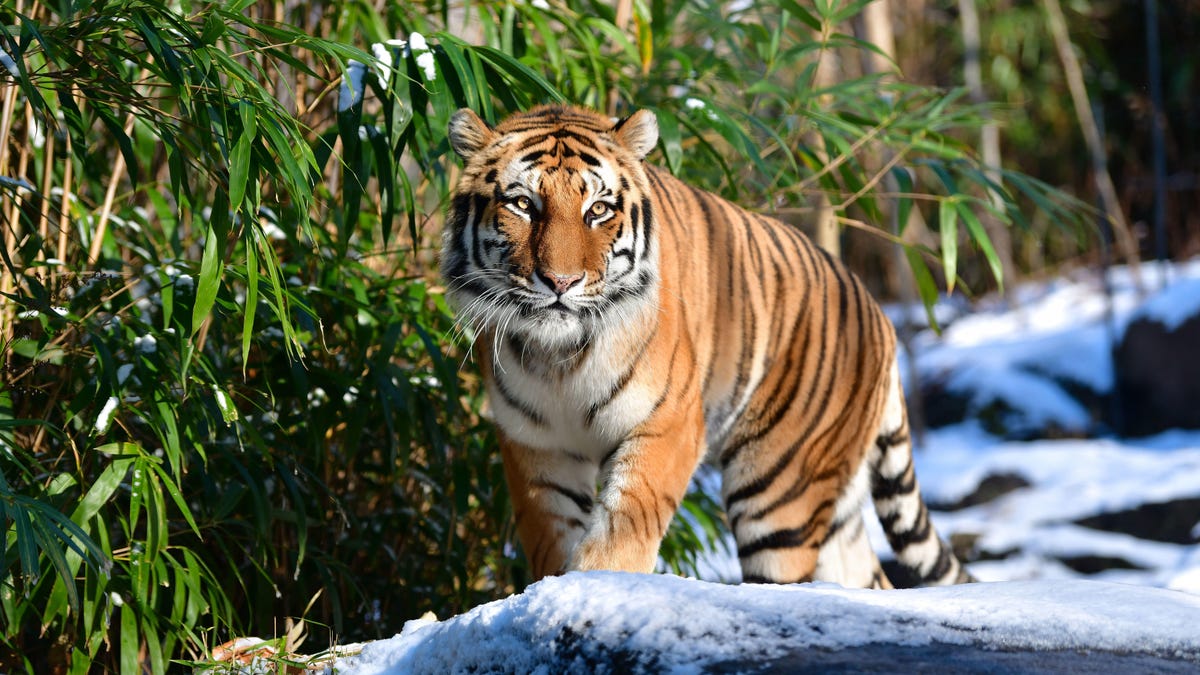Tiger at the Bronx Zoo tests positive for coronavirus
Seven big cats at the zoo are showing symptoms of COVID-19.

A 4-year-old tiger at the Bronx Zoo in New York has tested positive for COVID-19
A 4-year-old tiger at the Bronx Zoo in New York has tested positive for COVID-19, the disease caused by the coronavirus, according to a statement by the Wildlife Conservation Society. Three more tigers and three lions have developed a dry cough and are suspected cases. It is the first known confirmed case of COVID-19 in a tiger.
"Nadia, a 4-year-old female Malayan tiger at the Bronx Zoo, has tested positive for COVID-19" the statement reads. "We tested the cat out of an abundance of caution and will ensure any knowledge we gain about COVID-19 will contribute to the world's continuing understanding of this novel coronavirus."
The test was confirmed by the United States Department of Agriculture's National Veterinary Services Laboratory. The cats were infected by a carer who was not displaying any symptoms of the disease, according to the Wildlife Conservation Society.
Six other big cats -- three tigers and three lions -- housed at the Bronx Zoo are also displaying symptoms of COVID-19 infection. The cats have experienced "some decrease in appetite" but remain "bright, alert and interactive" with their keepers. They are expected to make a full recovery.
New York is the worst hit state in the US and has recorded over 2,200 deaths.
Coronaviruses, including the one which causes COVID-19, can make their homes in a variety of species, from camels to cows and pigs. The coronavirus, SARS-CoV-2, which was first detected in China in December 2019, is suspected to have originated in bats, before making the jump to an intermediary animal and then finding its way into humans. It has also been detected in cats and dogs.
A pre-print study, yet to be peer-reviewed and published on bioRxiv on April 1, suggests cats can infect each other with SARS-CoV-2, acting as a reservoir for the disease. Even so, experts caution there is no need to panic about our pets.
"There is very, very scant evidence that companion animals can become infected," says Trevor Drew, director of the Australian Animal Health Laboratory. The CDC reiterates this notion but suggests further studies are needed to understand how animals may be affected by COVID-19.

